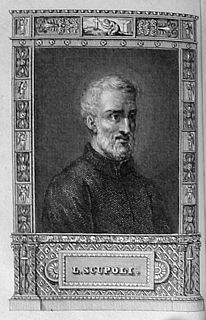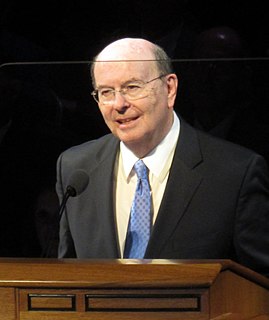A Quote by Pope John Paul II
Since Christ is the only way to the Father, in order to highlight His living and saving presence in the Church and the world, the International Eucharistic Congress will take place in Rome, on the occasion of the Great Jubilee. The Year 2000 will be intensely Eucharistic: in the Sacrament of the Eucharist the Savior, who took flesh in Mary's womb twenty centuries ago, continues to offer Himself to humanity as the source of Divine Life
Quote Topics
Related Quotes
Do you wish to learn the secret of true Eucharistic prayer? Consider, then, all the mysteries in the light of the Blessed Sacrament. It is a divine prism through which they can all be studied. The Holy Eucharist is, indeed, 'Jesus Christ, yesterday, and today, and the same forever' (Heb 13:8). In this Sacrament He glorifies all the mysteries of His life and prolongs, as it were, the exercise of all His virtues. The Eucharist is, in a word, the great Mystery of our faith to which all Catholic truths lead
Mary lived in the divine Eucharist, the center of her love. All her thoughts, words, and actions sprang from It like the rays from the sun. The Eucharist was the oracle which she consulted, the grace which she followed. But Jesus Christ in His Sacrament lives the same life of love which consumed Him in His mortal days. In His sacramental state He continues to adore His Father by His depthless self-abasement. He is still the Mediator and Interceder with divine goodness for the salvation of men
This practice of adoration is based on strong and solid reasons. For the Eucharist is at once a sacrifice and a sacrament; but it differs from the other sacraments in that it not only produces grace, but contains in a permanent manner the Author of Grace Himself. When, therefore, the Church bids us to adore Christ hidden behind the Eucharistic veils and to pray to Him for spiritual and temporal favors, of which we ever stand in need, she manifests faith in her divine Spouse who is present beneath these veils, she professes her gratitude to Him, and she enjoys the intimacy of His friendship
O Mary! teach us the life of adoration! Teach us to see, as thou didst, all the mysteries and all the graces in the Eucharist; to live over again the Gospel story and to read it in the light of the Eucharistic Life of Jesus. Remember, O our Lady of the Most Blessed Sacrament, that thou art the Mother of all adorers of the Holy Eucharist
This worship, given therefore to the Trinity of the Father and of the Son and of the Holy Spirit, above all accompanies and permeates the celebration of the Eucharistic liturgy. But it must fill our churches also outside the timetable of Masses. Indeed, since the Eucharistic mystery was instituted out of love, and makes Christ sacramentally present, it is worthy of thanksgiving and worship. And this worship must be prominent in all our encounters with the Blessed Sacrament, both when we visit our churches and when the sacred species are taken to the sick and administered to them
Total surrender to the will of God actually is sacrificing oneself as a burnt offering to God. The proof of this state is dying to oneself, - to one's own opinions, wishes and feelings or tastes, in order to live by Divine intellect, in conformity with the Divine will and in partaking of God. In the forefront of this endeavor is our Lord and Savior. He surrendered the whole of Himself to God the Father, and us in Himself, 'For we are members of His body, of His flesh, and of His bones' (Eph. 5:30). So let us hasten in His footsteps?
This is a real presence which includes every dimension of who Jesus is: body and blood, human soul and divine person. The consecrated Eucharistic species are the Lord and therefore command our adoration. We do not adore ourselves, nor the ordained priest, nor the Bible, even though these are vehicles for Christ's spiritual presence; we do adore the Eucharist, this blessed sacrifice made really present sacramentally.
The adoration of Jesus in the Most Blessed Sacrament is the end of the Church Militant, just as adoration of God in His glory is the end of the Church Triumphant. A holy rivalry, a concert of prayer, a harmony of divine service should exist between the heavenly court and the Eucharistic court here below, between the adorer and his mother the Church.
But look at the men who have those perverted notions about the grace of Jesus Christ which has come down to us, and see how contrary to the mind of God they are. . . . They even abstain from the Eucharist and from the public prayers, because they will not admit that the Eucharist is the self-same body of our Savior Jesus Christ which flesh suffered for our sins, and which the Father of His goodness raised up again.

































